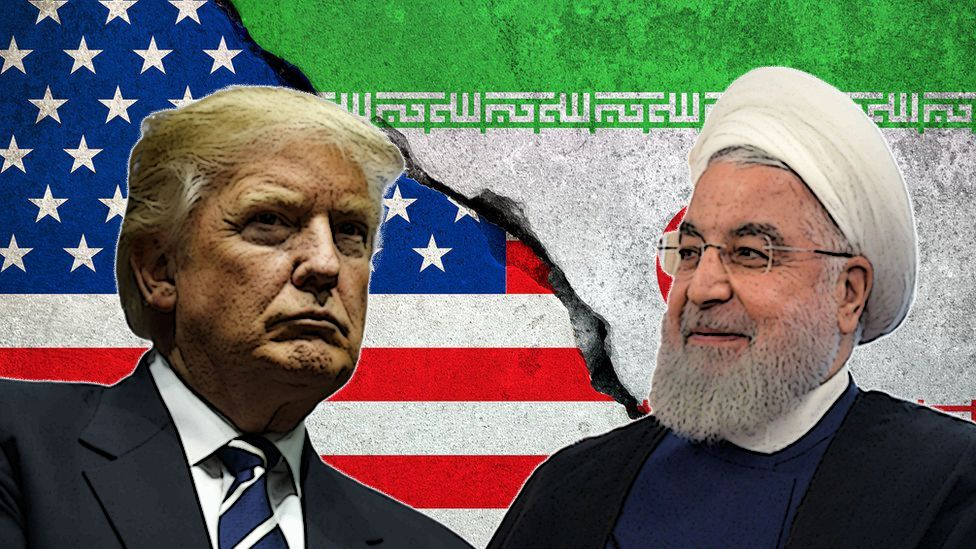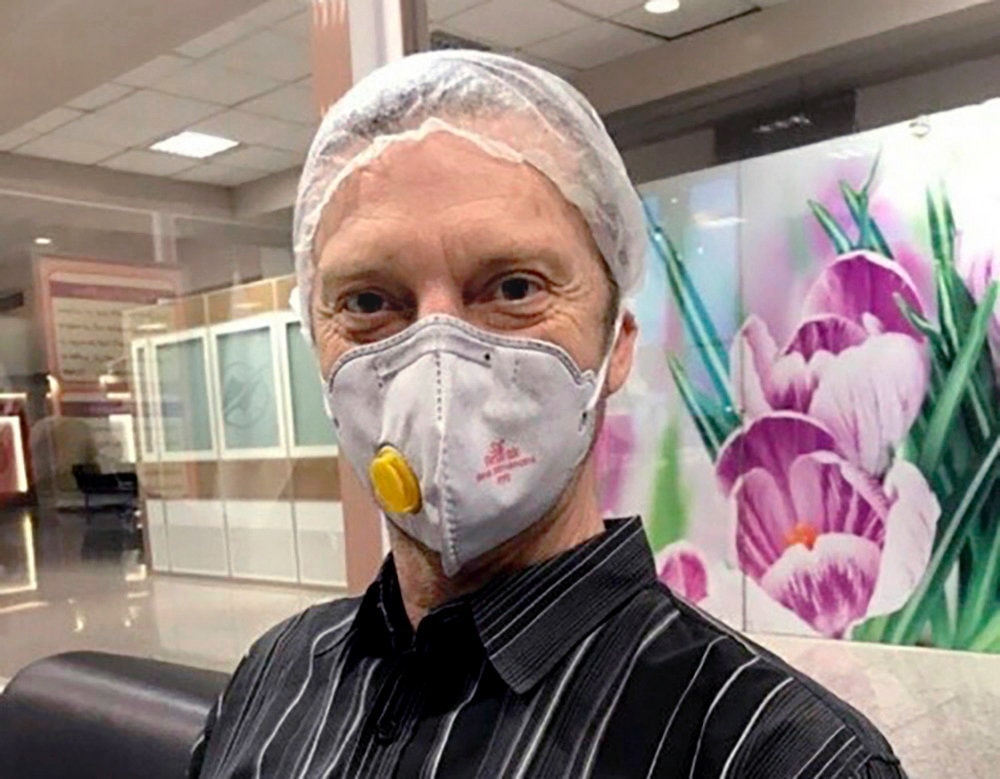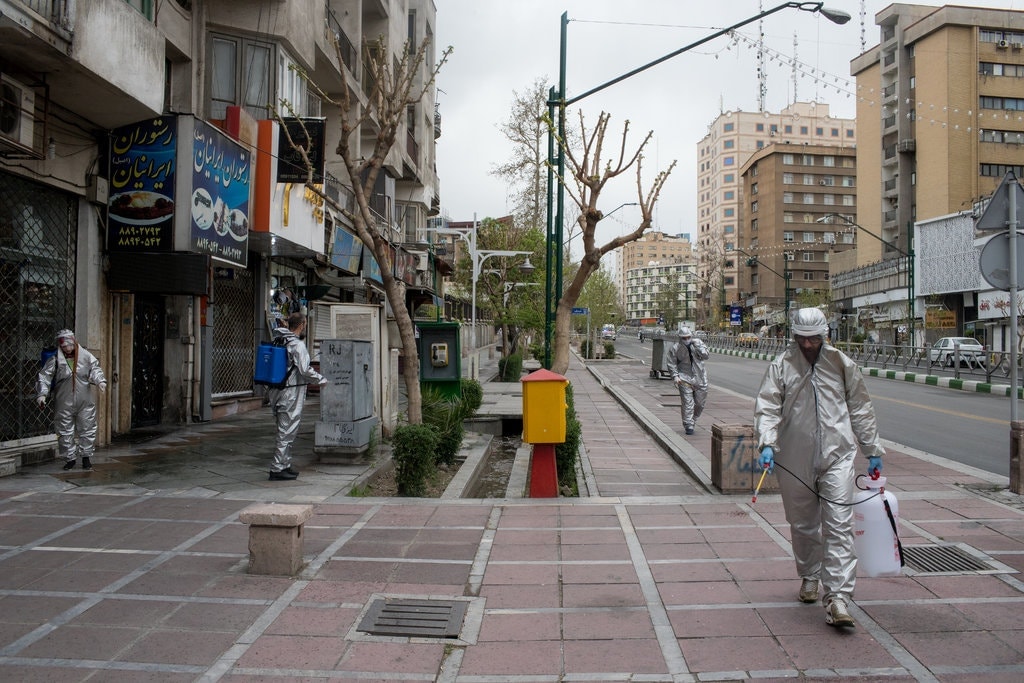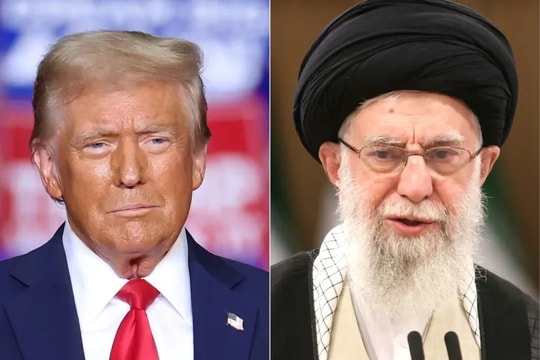US-Iran Relations: Hot and Cold!
(Baonghean) - Immediately after sending a letter asking the United Nations to hold the US accountable for withdrawing from the nuclear deal in response to Washington's request for the UN to extend sanctions on Tehran, the Iranian government suddenly made a statement to cool down the situation. Accordingly, Iran is ready to carry out a prisoner exchange deal with the US without any preconditions.
Rare move
The public must remember that the Trump administration has continued to maintain a strategy of maximum pressure on the Iranian government, or threatened to take countermeasures against Iran if any of Tehran's ships "mobilize" or harass US Navy ships in the Gulf. Most recently, US President Donald Trump vetoed a bill passed by both houses of Congress in March and April, aiming to limit the President's ability to launch a war against Iran.
The bill was passed after President Trump ordered an airstrike at an Iraqi airport that killed Iranian General Qasem Soleimani. According to Mr. Trump, his decision was legal, even though he did not notify or consult Congress. And that, according to Mr. Trump's accusation, this bill was proposed by the Democratic Party to divide the Republican Party, in order to gain an advantage in the presidential election later this year.
 |
| The US and Iran are still “neither side willing to give in” in their mind games. Photo: Getty |
Despite the continued escalation of tensions between the US and Iran, it appears that negotiations on a prisoner swap between the two sides are underway. The deal includes the release of Michael White, a US Navy veteran held by Iran, in exchange for an Iranian-American doctor held by the US. According to a spokesman for the Iranian government, the country is ready for a prisoner swap without preconditions. Last week, US officials also said they were making progress in efforts to secure the release of Michael White. However, so far, the US has not responded to Iran's proposal for negotiations.
Late last year, in a rare move, the United States and Iran conducted a prisoner exchange, with an American graduate student suspected of being a spy and an Iranian scientist. The exchange was carried out under the auspices and mediation of Switzerland.
It should also be mentioned that prisoners are a particularly sensitive issue in US-Iran relations. More than four decades ago, on November 4, 1979, a group of Iranian students stormed the US Embassy in Tehran and took about 60 US diplomats and citizens hostage. According to observers, this event became a milestone of hostility between the two sides, causing the bilateral relationship to fall into a serious crisis. To date, Iran is holding at least four US citizens, while the US is believed to be holding about 20 Iranians.
 |
| Michael White in Mashhad, Iran in March 2020. The US and Iran are reportedly in talks to exchange veteran Michael White for an Iranian-American doctor. Photo: AP |
Covid-19 agent?
Many believe that the Covid-19 pandemic is an unintentional intermediary factor promoting the dialogue process on prisoner exchange between the US and Iran. Michael White is said to have been infected with Covid-19 while being held in prison. He was later temporarily released from prison but is still being held at the Swiss Embassy in Iran.
Meanwhile, US State Department Spokesperson Morgan Ortagus said that for the Trump administration, bringing arrested US citizens home is a top priority. And that the Trump administration is always concerned about ensuring the health and safety of US citizens illegally detained by Iran. Furthermore, prisons are considered potential "hotbeds" of the Covid-19 epidemic for both the US and Iran. Therefore, although there has been no response, observers believe that the US has no reason not to "nod" to this "free" exchange!
From Iran's perspective, although Covid-19 was used as the reason for the prisoner exchange with the US, it is clear that Tehran has also shown a significant "de-escalation" when it did not demand any preconditions for this "exchange". Iran understands that, although President Trump may not launch a military attack, he will still maintain the "maximum pressure" strategy - both isolating and suffocating the Iranian economy, at least until the end of the US presidential election at the end of the year. Simply because only by being tough on Iran can Mr. Trump satisfy the hard-line views within his own party who want to punish Tehran even more severely.
Meanwhile, the Iranian government has probably never faced as many difficulties and challenges as it does now. The economy is plummeting and exhausted due to US sanctions, the shock of falling global oil prices... Iranian society is increasingly unstable and turbulent, with many waves of protests against the government of President Hassan Rouhani... Proposing a "beneficial" exchange for the US is not a "backward move" that Iran wants the US to take advantage of to loosen some of the sanctions against this country!
 |
| Medical workers disinfect a street in Tehran, Iran, in late March 2020. Michael White is believed to have contracted Covid-19 while being held in a Tehran prison, where conditions are considered the worst and a Covid-19 outbreak could occur at any time. Photo: New York Times |
Of course, as the one holding the “handle”, President Donald Trump probably cannot be quick to nod in agreement. And that a rare prisoner exchange deal with Iran, if reached, does not mean a brighter prospect for bilateral relations.
So far, President Trump has been using various means to pressure the Iranian government to accept negotiations on a new nuclear deal between the two sides, after the US withdrew from the historic agreement in 2015. However, Iranian President Hassan Rouhani still rejects negotiations with the US until the sanctions are lifted. Whether the pandemic will "soften" the calculations of the parties or not, we will probably have to wait until the Covid-19 pandemic has really passed. Because so far, the US is still the world's leading epidemic center, and Iran is also one of the most dangerous epidemic hotbeds in the Middle East!



